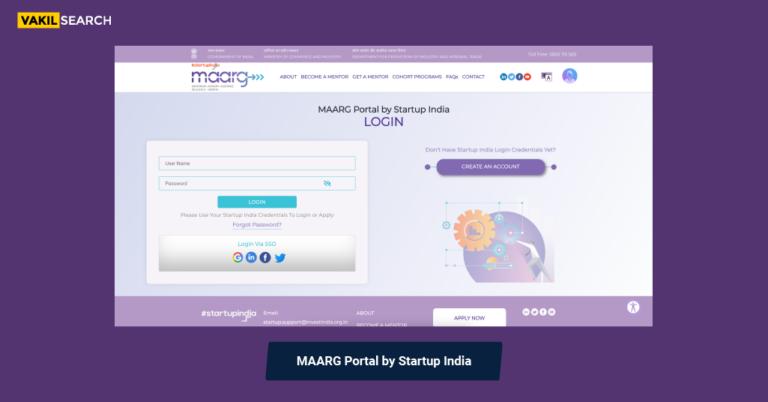In this article we are going to discuss the classic entrepreneurial dilemma of debt vs equity in terms of raising funds.
When you are funding for the better shares or debentures for startups business, there are various options available to choose from like a personal investment, family and friends, Angel investors, Venture capital, bank loans, Small Business Administration(SBA) loans or bootstrapping. All the options have their own upsides and downsides. It is better to research all the options that are available so that you choose the best option.
Looking out for various funding options for your startup? Well, there are many options available for you including family, friends, personal investment, angel investors, bank loans, bootstrapping and SBA (Small Business Administration) loans and venture capital. You can get to decide which option is the best for your business from the guide we have detailed here.
Learn about Startup India Registration.
Types of Fundraising Options
When it comes to funding a new startup business venture, there are several options out there for you to choose from whether it be investor-based fundraising, personal investments, friends and family or even bootstrapping. Before you decide on the best option, it is always better to research all available options so that you make an informed decision. So here’s a small comparison between shares or debentures for startups as a means to raise funds.
There are three types of investor funding in a startup:
- Equity
- Debt / Loan
- Convertible debt
Which one out of these will work best for your venture depends on the stage, size and market share of your business, the period, the amount required and your long-term and short-term goals for the company. We will not discuss the various advantages and disadvantages of each type of funding source so that you can make an informed decision on which one to pick.
Click here to calculate your Business Startup Costs
Equity: How it Works
In this method, investors receive a stake in your company for investing in it. Equity remains the most sought-after form of capital due to its long-term nature. Set a specific valuation for the company and based on the amount of money provided by the investor they go on to own a percentage of stock in the company.
- This option works best for companies that will take a while to start generating revenue. Internet companies and e-commerce companies take a while to become cash positive, and in such cases, it is better to opt for issuing shares because it allows you to be debt-free for more extended periods of time. If you need a substantial amount of cash to sustain your growth before you start raking in profits, equity is the cheapest thing you can put up for sale.
- It is also the most preferred options for individuals who do not have any collateral to pledge on their name. Loans require you to offer something as collateral so as to lower the risk taken by the financial institutions.
- Also, some businesses require a massive amount of capital to turn operational and in such cases, even bootstrapping doesn’t pull through leading to you having to issue some shares to make ends meet.
- Equity also tends to help industries that have the potential for exponential growth. While a local coffee shop idea may not pull in many equity buyers, a new venture related to the expanding field of robotics might attract quite a few investors.
The downside of equity is as follows
- Choosing this route narrows your options with regards to expansion and future of the company. Equity investors look for liquidity and hence expect either sale or IPO. Therefore, make sure you have your entire plan mapped out well enough to convince them.
- Investors expect a lot of returns for being risk-friendly with their investments for your startup. Hence they require more than just interest payment.
- The competition is cut-throat because most entrepreneurs look for equity. Also, no matter how much you try, it will take a lot of time to procure the right amount of capital you need.
- If you are facing a time crunch, then bid adieu to the idea of equity fundraising. Don’t expect it back. Once you give up equity, it’s more than likely that you will never be able to buy it again and so be careful of how much you sell and for how much you issue them.
Non-Convertible Debentures (NCDs)
An NCD is a debt paper for a stipulated period of time wherein the company pays a fixed interest to the investor.
While a convertible debenture offers the option of converting the investment into equity, an NCD rules this off as on maturity both the principal amount and interest is paid back to the investor.
These attract investors because they provide a high return to investors when compared with other such investments such as fixed deposits.
While the assets of the company back a secured NCD an unsecured NCD has no such safety net for when the company fails.
Every company seeking to raise capital this way needs to get the proper verification done by CRISIL, ICRA, CARE and Fitch Ratings. A higher rating translates to better ability to repay the investor. While a lower one predicts a higher risk of investment.
NCDs offer rates are as high as 11-12% with each offering varying options for payout. Be it monthly, quarterly, half-yearly or annually. The interest earned on an NCD is taxed at the marginal income tax rate while capital gains have different taxability. They prove to be a credit risk because the company may default payment. Another risk it offers is the liquidity risk because low listed volumes lead to investors not being able to back out when they want to for fear of losing out on profits. The most significant advantage that they offer is that they give the company a lot of flexibility to raise. And lower rates while keeping a share of the equity.
Conclusion
Keep these pointers in mind while choosing which way to go. Because securing funding for your startup venture is the first step towards building your dream company.
When you are picking up the best funding source, survey your capabilities, monetary needs and negative of financing. Few necessities have to be done before you qualify for certain financing sources. Therefore, it is important to guarantee you of the various choices which are accessible for you, their circumstances and obstruction.
If you have any other queries or require any assistance with regards to legal or regulatory matters, get in touch with us and we will ensure that you receive the best professional assistance that you require.
Read More:










